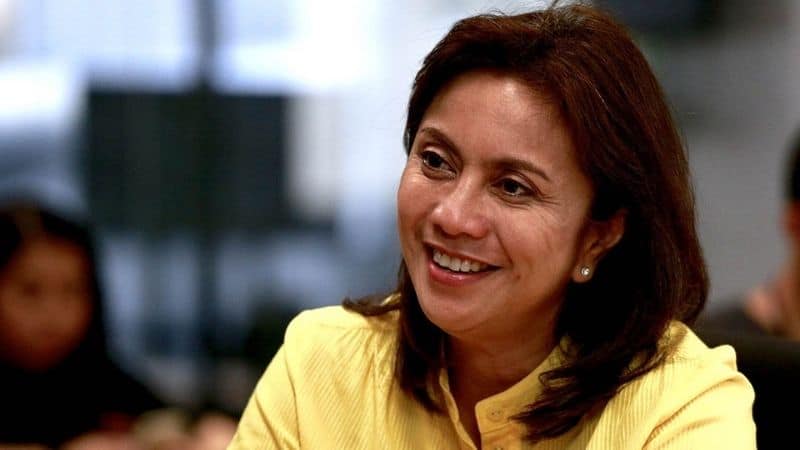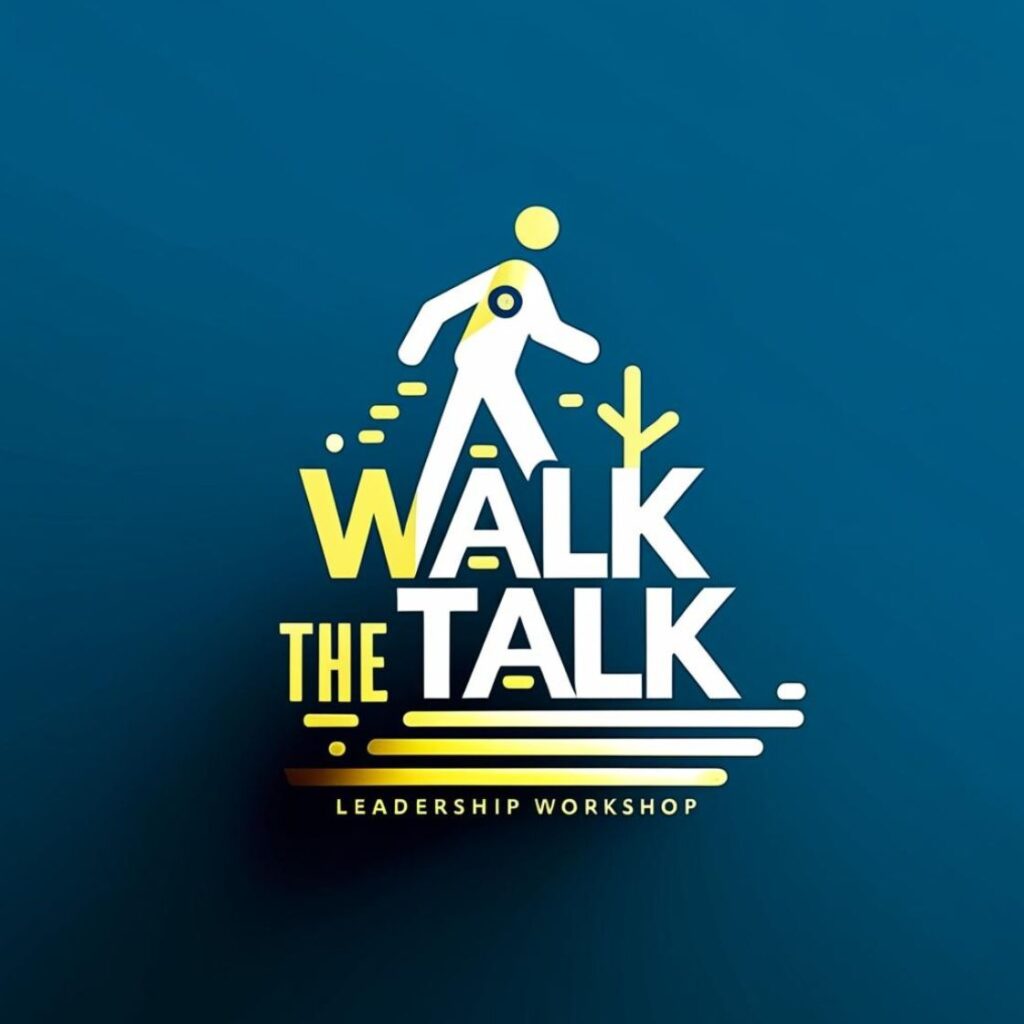What makes a leader? Many people think it’s about being in charge or having a big title. But it’s more than that. A leader is someone with vision, honesty, and the power to inspire others.
In every corner of our world, leaders show up. From classrooms to boardrooms, from sports fields to art studios, leaders guide, motivate, and blaze trails. They might wear different hats in different places, but they all share a special spark.
This piece dives into the heart of leadership. We’ll journey across professions, meeting people who lead in unique ways. Let’s explore what ties them together and what sets them apart.
What is a leader?
A leader is someone who guides and inspires others, showing them the way and motivating them to work together towards a common goal. Leaders make decisions, provide direction, and set an example for others to follow. A leader influences and empowers people, helping them grow and succeed.
To help you figure out what leaders do and how they impact others, allow me to give you examples.
A mayor is a leader who serves their constituents. Mayors work tirelessly to improve the quality of life in their communities. They champion initiatives that enhance infrastructure, education, healthcare, and public safety.
They foster economic growth, attract investments, and create job opportunities, leading to a thriving and prosperous community.
A teacher is a leader who guides and empowers students. Teachers inspire a love for learning and provide knowledge that shapes the minds of future generations. They create a nurturing environment where students can develop critical thinking, creativity, and communication skills.
Teachers make a lasting impact by equipping students with the tools they need to succeed academically and in life.
A coach is a leader who motivates and mentors individuals or teams. Coaches inspire discipline, resilience, and teamwork. They instill a sense of purpose, help individuals set goals, and provide guidance to overcome challenges.
Coaches cultivate talent and potential, empowering individuals to achieve personal and professional growth, both on and off the field.
A therapist is a leader who supports and heals individuals. Therapists provide guidance and counseling to help people navigate through emotional struggles, mental health issues, and life transitions. They offer a listening ear, empathy, and strategies for coping and personal development.
Therapists have a profound impact on individuals’ well-being, enabling them to lead healthier and more fulfilling lives.
A chef is a leader who creates culinary wonders. Chefs use their creativity and expertise to craft delicious and memorable dining experiences. They experiment with flavors, techniques, and presentation, delighting taste buds and nourishing the soul.
Chefs bring people together, fostering a sense of community and cultural appreciation through the universal language of food.
An artist is a leader who expresses emotions and provokes thought. Artists use their creativity and imagination to challenge perceptions, spark conversations, and evoke deep feelings.
Through their work, artists inspire social change, shape cultural identity, and provide a platform for self-reflection and introspection. They contribute to the enrichment of society and help us see the world from new perspectives.
A scientist is a leader who explores and discovers. Scientists push the boundaries of knowledge, conducting research, and experiments to unravel the mysteries of the universe. Their discoveries drive technological advancements, medical breakthroughs, and environmental solutions.
Scientists improve our understanding of the world, shaping our future and addressing complex challenges facing humanity.
A firefighter is a leader who protects and saves lives. Firefighters respond to emergencies, extinguishing fires and providing rescue services. They risk their own safety to ensure the well-being of others.
Firefighters also play a crucial role in fire prevention and community education, raising awareness and promoting safety measures. Their dedication and bravery make communities safer and more secure.
A musician is a leader who moves and inspires through melodies. Musicians captivate audiences, evoking emotions and creating connections through the power of music.
They entertain, educate, and promote cultural expression. Musicians contribute to the enrichment of society, bringing joy, healing, and unity through their artistic endeavors.
A humanitarian aid worker is a leader who brings hope and assistance to those in need. They respond to humanitarian crises, providing emergency relief, food, shelter, and medical aid to affected communities.
Humanitarian aid workers work tirelessly to restore dignity and stability to vulnerable populations. They inspire compassion, advocate for social justice, and foster global solidarity.
A business person is a leader who drives economic growth and job creation. Business leaders foster innovation, develop strategies, and make impactful decisions that propel companies forward.
They create employment opportunities, contribute to the economy, and inspire a culture of success.
An environmentalist is a leader who advocates for the preservation of our planet. Environmentalists raise awareness about sustainability and work towards conserving natural resources.
They promote renewable energy, protect ecosystems, and inspire individuals and communities to adopt eco-friendly practices, ensuring a greener and healthier future.
A journalist is a leader who informs and safeguards democracy. Journalists investigate and report on news and current events, ensuring the public stays informed.
They hold those in power accountable, expose corruption, and promote transparency, contributing to an informed and engaged society.
A parent is a leader who nurtures and guides their children. Parents provide love, care, and guidance to their children, helping them develop values, skills, and resilience.
They inspire their children to be compassionate, responsible individuals, shaping the future generation.
A motivational speaker is a leader who inspires and empowers individuals. Motivational speakers deliver powerful messages that uplift and motivate audiences.
They share personal stories, and strategies for success, and encourage personal growth, leaving a lasting impact on individuals’ lives.
A military officer is a leader who ensures national security and defense. Military officers lead troops, strategize missions, and protect the country from threats.
They embody bravery, discipline, and sacrifice, preserving peace and safeguarding the well-being of citizens.
An astronaut is a leader who expands human knowledge and exploration. Astronauts venture into space, conducting scientific research, and pushing the boundaries of human capabilities.
They inspire future generations, foster innovation, and advance our understanding of the universe.
A community organizer is a leader who mobilizes and empowers communities. Community organizers bring people together, fostering collaboration and collective action around shared goals. They advocate for social change, address local issues, and create a sense of belonging and civic engagement.
A technology innovator is a leader who revolutionizes industries and transforms lives. Technology innovators develop groundbreaking solutions, driving advancements in various fields.
They improve efficiency, connectivity, and accessibility, shaping the way we live, work, and interact with the world.
A spiritual leader is a leader who guides individuals on their spiritual journey. Spiritual leaders offer guidance, support, and teachings that promote inner peace, mindfulness, and personal growth.
They inspire individuals to find purpose and meaning in life, fostering spiritual well-being.
Very few people walk with a title that says “leader”. That’s because your leadership is how you exercise your profession, your job, or your vocation to help others.
In fact, you don’t even need a title to become a leader. Every time you bring out the best in people — and you inspire them to do more and be more – you are a leader.
Examples of Leaders
When we think of leaders, it’s easy to picture people in suits or uniforms, standing tall and making big decisions. But leadership isn’t confined to a particular dress code or setting. Across the world, in all walks of life, leaders rise to guide, inspire, and make a difference. Let’s delve into a few professions and meet some of these influential figures.
Politics
- Nelson Mandela: In South Africa’s turbulent history, Mandela shone as a beacon of hope. He wasn’t just a politician; he was a symbol of resistance and reconciliation. After 27 years in prison, instead of seeking revenge, he championed forgiveness, paving the way for a new South Africa.
- Angela Merkel: The first female Chancellor of Germany, Merkel, faced a world filled with financial crises and global challenges. Yet, her calm, pragmatic approach earned her respect worldwide. She exemplified that leadership isn’t always about making noise; sometimes, it’s about steady guidance.
- Mahatma Gandhi: Gandhi’s philosophy was non-violence. He led India to independence not with weapons, but with peaceful protests and unwavering determination. His leadership reminds us that true power doesn’t always come from strength but from conviction.
Military
- Dwight D. Eisenhower: As a Supreme Commander during World War II, Eisenhower’s leadership was pivotal. He managed not only troops but also complex relationships among the Allied nations. His ability to strategize and maintain cohesion was key to the success of D-Day and the eventual defeat of Nazi Germany.
- Admiral Grace Hopper: Not all military battles are fought on the front lines. Hopper, a computer scientist, revolutionized naval computing. Her innovative thinking led to the development of the first compiler for computer languages, laying the groundwork for much of today’s computer technology.
- Joan of Arc: A young shepherdess in the 15th century, Joan felt a divine calling to lead France against the English occupation. Guided by her faith and visions, she inspired troops and led them to several key victories. Her leadership, driven by unwavering belief, changed the course of history.
Business
- Elon Musk: A true modern-day innovator, Musk isn’t confined to one industry. From electric cars at Tesla to space exploration with SpaceX, his ambition knows no bounds. While his methods are sometimes questioned, his vision is undeniable. He reminds us that leaders are often those who dare to dream the biggest.
- Indra Nooyi: As the former CEO of PepsiCo, Nooyi broke barriers not only as a woman but as an immigrant. Her focus wasn’t just on profits, but on making PepsiCo a more sustainable and healthier company for the future. Nooyi’s leadership style blends tradition with innovation, always keeping an eye on the bigger picture.
- Steve Jobs: Apple’s co-founder wasn’t just a tech enthusiast; he was a visionary. Jobs believed in the intersection of technology and arts. Under his guidance, Apple created products that changed how we interact with technology. His legacy teaches us that true leadership is about creating a movement, not just a product.
Science
- Marie Curie: Venturing into the unknown, Curie’s relentless pursuit of knowledge led her to discoveries in radioactivity. She remains the only person to win Nobel Prizes in two different scientific fields. Her dedication reminds us that leadership in science is often a blend of curiosity and perseverance.
- Neil deGrasse Tyson: More than an astrophysicist, Tyson has become one of the most recognizable faces in science education today. With his ability to explain complex topics in relatable ways, he sparks interest in the cosmos for people of all ages. Leaders like Tyson teach us the importance of bridging the gap between experts and the general public.
- Rosalind Franklin: Although her contributions to the discovery of DNA’s structure were overlooked initially, Franklin’s work was pivotal. Her photograph of DNA allowed Watson and Crick to create their famous model of the double helix. Franklin’s story highlights that sometimes, leadership and influence might be recognized posthumously.
Arts
- Frida Kahlo: With a paintbrush in hand, Kahlo transformed personal pain and struggle into vibrant, evocative art. Her work wasn’t just about beauty; it was about identity, politics, and the human experience. Through her art, Kahlo taught us that leadership can also be about vulnerability and self-expression.
- Lin-Manuel Miranda: Using the stage as his platform, Miranda changed the face of modern musical theater. “Hamilton” wasn’t just a hit; it was a cultural phenomenon, weaving history with contemporary music styles. Miranda’s work underscores that leaders in the arts can shape conversations on society, history, and identity.
- Akira Kurosawa: This legendary film director from Japan crafted stories that transcended cultural boundaries. Films like “Seven Samurai” and “Rashomon” didn’t just entertain; they explored human nature and morality. Kurosawa reminds us that a leader in the arts can influence and inspire generations globally.
Sports
- Phil Jackson: Known as the “Zen Master,” Jackson’s coaching philosophy was a mix of discipline, mindfulness, and team synergy. Under his guidance, NBA teams like the Chicago Bulls and the LA Lakers achieved championship glory. His approach to leadership on the court was about nurturing both the physical and mental aspects of his players.
- Serena Williams: On the tennis court, Williams displays unmatched power and skill. Off the court, she’s an advocate for women’s rights and social justice. Her journey from the streets of Compton to global tennis domination proves that with talent and determination, leaders can rise from any circumstance.
- Mia Hamm: Revolutionizing women’s soccer in the U.S., Hamm’s dedication and skill set new standards. As a two-time Olympic gold medalist and World Cup winner, she not only showcased her prowess but also elevated the profile of women’s sports. Hamm’s leadership highlights the importance of breaking barriers and setting new benchmarks.
Activism
- Malala Yousafzai: Shot by the Taliban simply for going to school, Malala turned her tragedy into a global campaign for girls’ education. As the youngest Nobel Prize laureate, her resilience and advocacy have transformed her into a symbol for girls’ rights worldwide. Her leadership teaches us that age is no barrier to making a significant impact.
- Greta Thunberg: With a straightforward message, “Listen to the science,” this young Swedish activist sparked a global movement. Greta’s Fridays for Future protests highlight the urgency of climate change. Her dedication shows that leaders can emerge from anywhere, turning passion into worldwide action.
- Martin Luther King Jr.: Armed with a dream and non-violent principles, King was at the forefront of the American civil rights movement. His speeches, marches, and unwavering hope inspired millions to seek justice and equality. His leadership legacy is a testament to the power of words and peaceful protests.
Education
- Jaime Escalante: Working in a low-income school in East Los Angeles, Escalante proved that with the right teaching methods and high expectations, all students could excel. His math students went on to achieve unexpected success in advanced placement calculus. His journey, depicted in the film “Stand and Deliver,” showcases that true educational leadership is about belief in students’ potentials.
- Maria Montessori: Shifting the traditional teaching paradigm, Montessori introduced an educational method that focused on fostering a child’s natural interests and independence. Today, Montessori schools worldwide continue to use her philosophy, emphasizing hands-on learning and self-directed activities. Montessori’s influence underscores the long-lasting impact of innovative educational leadership.
- Sir Ken Robinson: An advocate for creativity in schools, Robinson emphasized the importance of an education system that nurtures talent rather than stifling it. His famous TED talk, “Do schools kill creativity?”, challenged educators and policymakers to rethink the purpose and method of education. Robinson’s thought leadership in education underscores the role of educators not just as teachers but as visionaries.
Leaders Emerge Amid Crisis
In moments of profound challenge and upheaval, leadership shines brightest. Times of crisis unearth true heroes: individuals who, with an unyielding spirit and unwavering resolve, step up to guide, inspire, and make a tangible difference.
As the world grappled with the harrowing effects of a pandemic, several leaders emerged from the Philippines. Their actions and initiatives underscored the nation’s resilience and spirit of “bayanihan.”
Here, I spotlight five Filipino leaders who rose magnificently to the challenges posed by the pandemic.

Leni Robredo
Philippines’ Vice President, Leni Robredo, was at the forefront, implementing various initiatives to support her compatriots.
From establishing free shuttle services for frontline health workers to orchestrating community markets, Robredo exemplified what service-oriented leadership looks like in times of dire need.

Angel Locsin
Beyond her fame as an actress, Angel Locsin showcased her heart for service. With efforts ranging from erecting tents for exhausted healthcare workers to initiating vital fundraising campaigns, she demonstrated how individuals can use their platform to rally communal strength and resources.

Patricia Non
Patricia Non’s brainchild, the “community pantries,” turned into a heartwarming testament to the Filipino spirit. What began as a simple cart of goods soon blossomed into a nationwide movement, emphasizing shared responsibility and community support.
Francis Pangilinan
A prominent legislator and farmer, Senator Francis “Kiko” Pangilinan used his influence to push for better support for Filipino farmers, ensuring that food supply chains remained uninterrupted.
His efforts, combined with promoting urban agriculture, highlighted the importance of food security during times of crisis.
Leody de Guzman
A union leader and advocate for the working class, Leody de Guzman championed the rights and welfare of workers, particularly those hardest hit by the pandemic.
He called for equitable relief measures, ensured worker protections, and emphasized the significance of upholding labor rights, especially during challenging times.
In the face of adversity, these Filipino luminaries, each in their unique capacity, exhibited that genuine leadership is characterized by action, empathy, and an unwavering commitment to the greater good.



